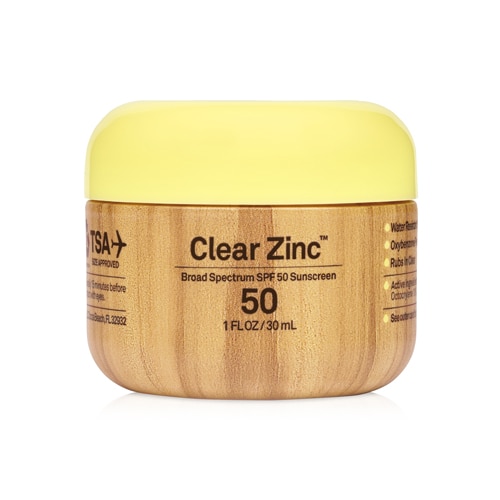As the calendar flips toward summer, months of dry indoor air give way to warm outdoor weather and the
dewy glow that comes with it. Despite the season’s beauty promise, the year's hottest months demand smarts when it comes to caring for your skin. Skin care products shouldn’t harm your health, yet
research shows many do. You're not tied to risky options though.
Choosing natural ingredients and
avoiding chemicals protects your skin and your overall health, without sacrificing results. Here are 5 guidelines for building an effective natural summer skin care routine.

Top Summer Skin Tips
Be a sleuth (without much effort)
Investigate products to line your beach bag and bathroom vanity with ease, thanks to Environmental Working Group, a Washington D.C.–based leader in raising public awareness about chemicals in self-care products. The nonprofit health advocacy and research organization's online
Skin Deep database breaks down ingredients in thousands of products, enabling you to take control of your skin-care regimen.
If you want to cross-check and do more analysis, consider
Think Dirty, an app based in Canada that's newer to the scene and warns consumers about hazardous products and ingredients.
Recast sun-protective practices
One of the best ways to avoid premature aging of your skin while also reducing your risk for skin cancer is to be strategic about sun exposure, dermatology and health
experts agree. Your primary line of defense is avoiding that massive overhead orb of heat during its most potent hours, 10 a.m. to 2 p.m.,
according to the American Academy of Dermatology. To be more cautious, extend your sun-the-shun window to 4 p.m., as the
American Cancer Society advises.
If you can’t avoid being outside during those hours, shield your skin with clothing and stay in the shade. If none of those defenses is feasible, you need protection in a bottle or tube, meaning: sunscreen. Be sure to still protect your skin when it's cloudy or you're near windows, which block only some harmful sun rays.
Understand UV light and sunscreen basics
The warm envelope of sunshine we crave after months of cold temps includes radiation in the form of UVA and UVB rays, both of which cause skin cancer. UVA rays are enemy #1 for aging your skin. They also hurt your immune system. UVB rays darken and burn your skin. In turn, you need to protect yourself against both types of ultraviolet rays.
Trouble is, the “SPF” billing we rely on, which stands for “
sun protection factor,” refers only to protection against UVB rays. The solution is to use a broad-spectrum sunscreen of at least SPF 15 and ideally SFP 30, according to the experts. Don't be wooed by anything higher than SPF 50, which can confer a
false sense of protection.
Pick mineral-based sunscreens
Unless you want chemicals lurking in your system, home in on
zinc oxide and titanium dioxide, minerals that are terrific at naturally blocking UVA and UVB rays. Look for them in labels for
sunscreen—and moisturizer, for everyday protection. Avoid products with oxybenzone, homosalate and avobenzone, chemicals commonly found in sunscreen. They readily penetrate skin, and the body systematically absorbs them, according to a
2020 study in JAMA. They can be found weeks later in blood samples—and skin. Earlier studies have “detected many sunscreen ingredients in breast milk and urine samples,”
EWG notes.
Keep your sunscreen classic
Humans love hacks and streamlined options, but when it comes to summer skin care they won't help—and can even hurt. That means you should avoid sunscreen sprays, towelettes and powders,
according to EWG. Spraying seems easier than slathering, but it's an ill-fated strategy for uneven application, EWG warns. Sunscreen towelettes and powders are actually
no-nos according to the FDA, but can still be found through some online retailers. Sprays and powders are problematic on another level: They pose inhalation risks and can hurt your lungs.
Finally, don't use sunscreen that has retinyl palmitate because it can increase your skin's sensitivity to UV rays—undermining your painstaking diligence in protecting your outer sheath with natural summer skin care.
Mitra Malek is a news journalist and former Yoga Journal editor.




